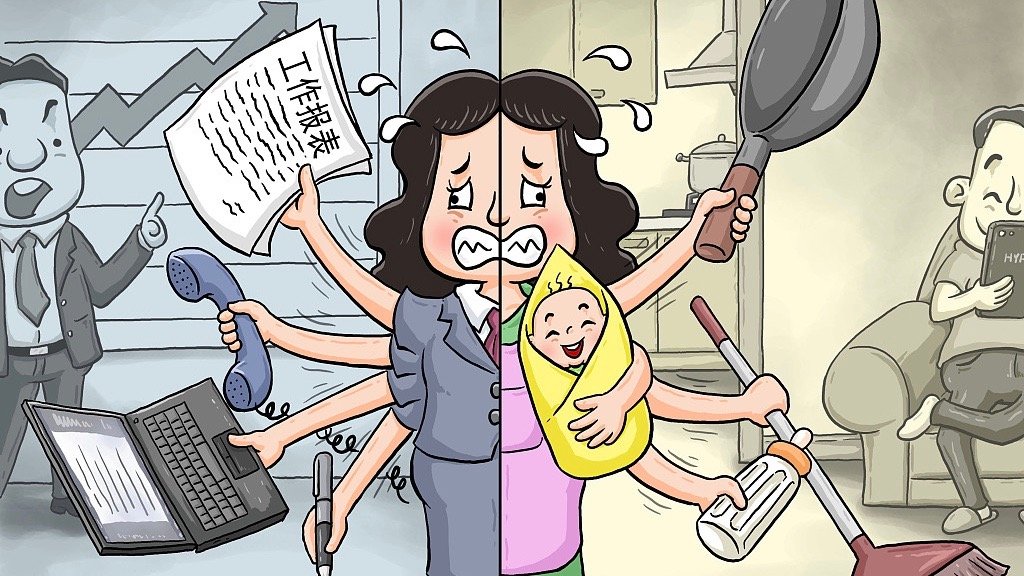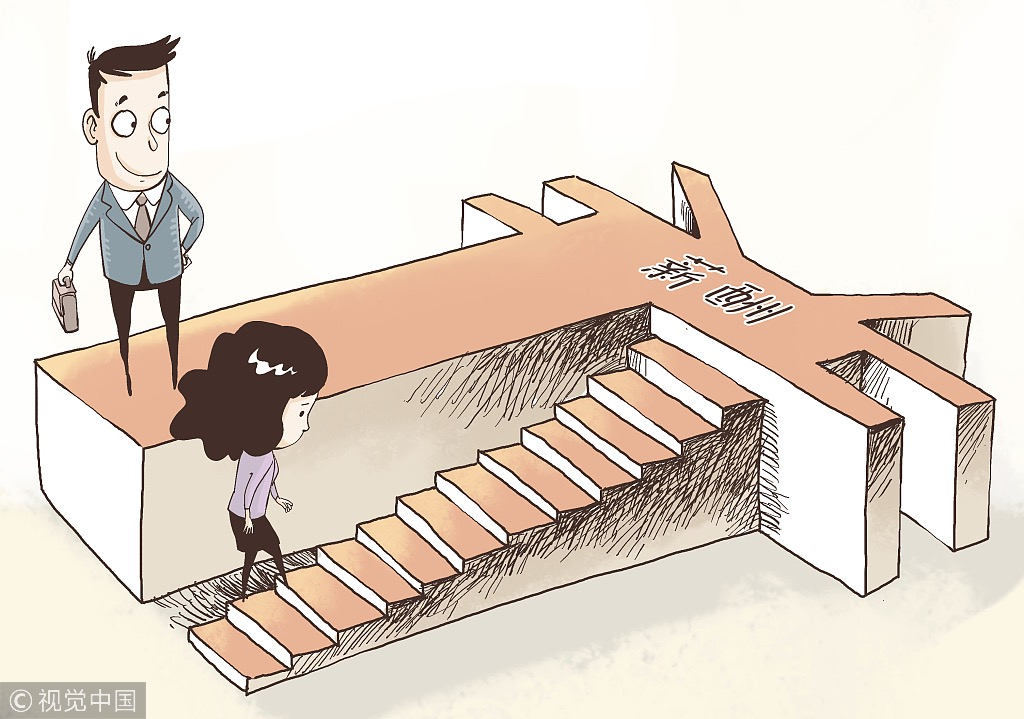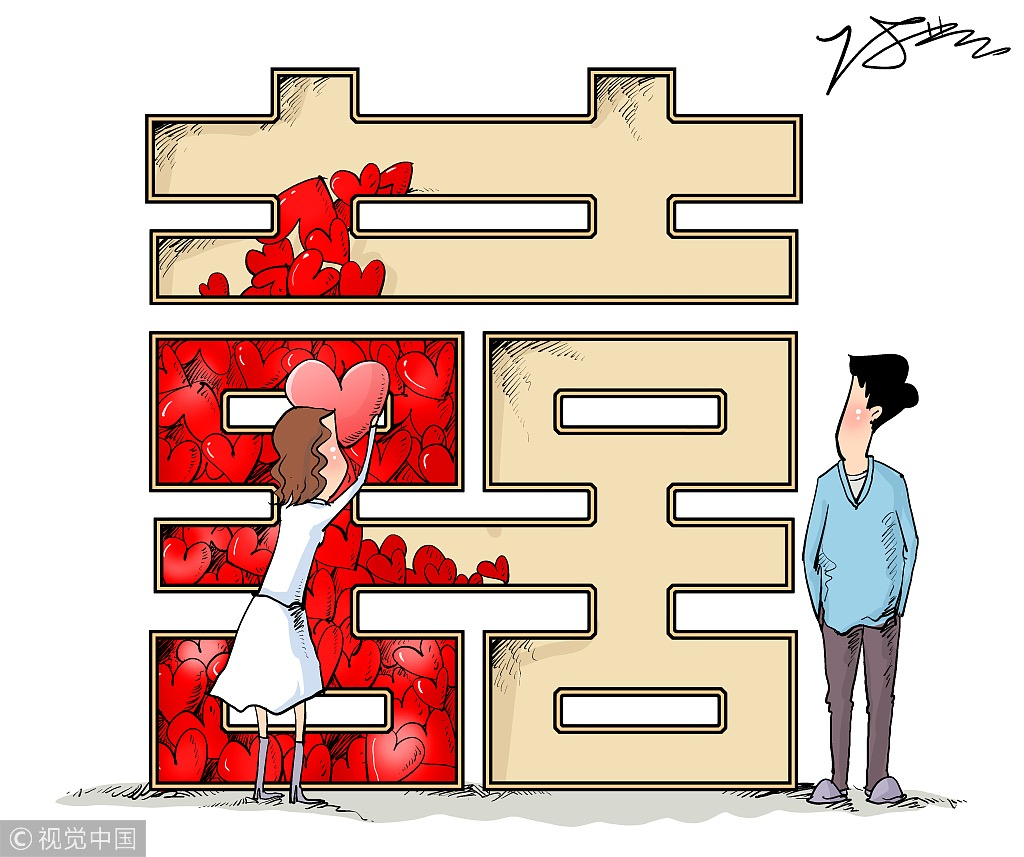
Society
20:10, 08-Mar-2019
The true economic value of being a woman
Updated
20:21, 08-Mar-2019
By Wang Xiaonan

A survey by online recruiter Boss Zhipin finds that the average Chinese working woman earns 78.3 percent of her male counterpart, in 2018. This salary gulf is 8.7 percentage points higher than that of the previous year. Among the 2,280 people polled, 72 percent of female respondents believe that putting more effort into their families hinders their chances of getting a promotion, compared with 57 percent of males surveyed.
The report has struck a chord among many career-oriented women. Some feel helpless in the face of this inequality, saying it's really hard to take care of both work and household chores. Others are venting their discontent on social media. “If you quantify our contribution to our families and equate it with money, you will find our economic value greater than men,” one netizen wrote on Sina Weibo, the Chinese equivalent of Twitter.
British scholar Tom Schuller is quoted in the report as saying "most women work below their level of competence." According to Schuller's "Paula Principle," persistent injustice or unfairness is a waste of talent. Women often fail to be fairly rewarded both financially and psychologically, that is, the "satisfaction from knowing that one's abilities are being properly employed, and a sense of progression, of moving forward."

VCG Photo
VCG Photo
Quite a few working women in China see family as a drag on their career and believe that they could have scored more achievements if not fettered by household tasks. In most nuclear families, women usually have to prepare meals, do the laundry and take care of kids once they get home from a day of exhausting work.
"We are the true multitaskers," said Zhao Ting, a 29-year-old editor in Beijing. Despite a very enviable work schedule of three days on and three days off, she still grumbles about time poverty to look after her 2-year-old son. “I want to keep my kid company for a couple of hours every day because that benefits his mental health,” she told CGTN.

VCG Photo
VCG Photo
"My husband has been busy taking on a multitude of projects at his job as he's the main bread earner. We have to pay for the house and the car. So I can ‘forgive' him for being absent from domestic work." That's the case with most young Chinese families where women spend three hours and 54 minutes a day on household chores and childcare, almost 2.5 hours more than men, according to a report by the Organization for Economic Co-operation and Development (OECD) last year.
In another survey by the organization in 2014, Chinese women worked 44 minutes more than men each day if paid and unpaid domestic work are both taken into consideration. Moreover, men had 37 more minutes than women a day in sports and entertainment.
It's appreciable that the situation for career women has barely improved over the past five years. The entrenched social convention that domestic work is exclusively for women has impeded them from attaining equal recognition and reward compared with men. American political activist Angela Davis was not off the mark when she said that "women are generally responsible for the daily tedium of housework which is invisible, repetitive, exhausting, unproductive and uncreative."
An Oxfam study released in January revealed that unpaid care and domestic work done by women across the globe mounted up to 10 trillion U.S. dollars per year – that's 43 times the annual turnover of Apple, the largest American company by market capitalization.
The undervaluing of a woman's skills and their contributions at work and home may be framed as an economic loss, but the social attitudes that fuel such implicit bias are not financial. Given the hidden roles that women are sometimes still expected to play in settings both professional and domestic, and the stigma that is attached to their speaking up, true gender equality remains elusive.

SITEMAP
Copyright © 2018 CGTN. Beijing ICP prepared NO.16065310-3
Copyright © 2018 CGTN. Beijing ICP prepared NO.16065310-3